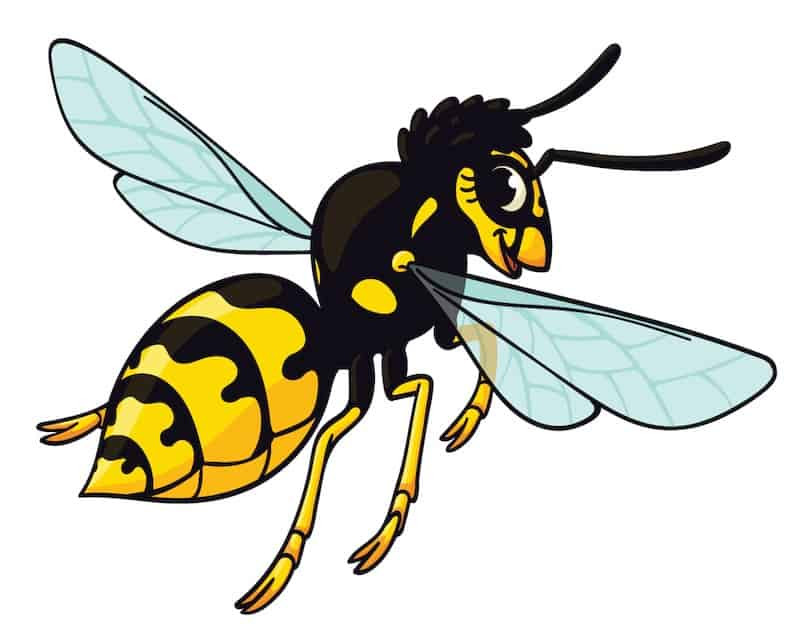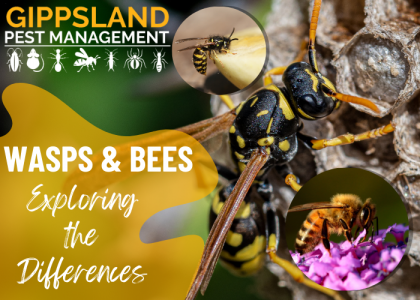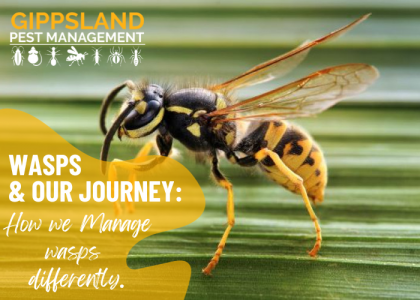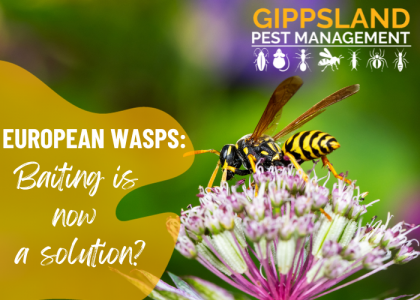Wasp Treatments
Wasp Treatments consists of our technician directly injecting/exposing the nest to an insecticide dust. Once treatment has been conducted the nest can stay active for 24-48 hours this is mostly due to the workers slowly returning home to the nest over time.
Gippsland Pest Management offers a 30 day aftercare on the area treated.
We can complete the same treatment on a bee hive, yet if you’d like the bees safely relocated, please find a local a beekeeper to help.
There are 3 main types of Wasps we treat, so read our blog post to understand the difference and what treatment is recommended.
$220 Per Treatment (Single Storey Building)
$440 Per Treatment (Double Storey Building)




